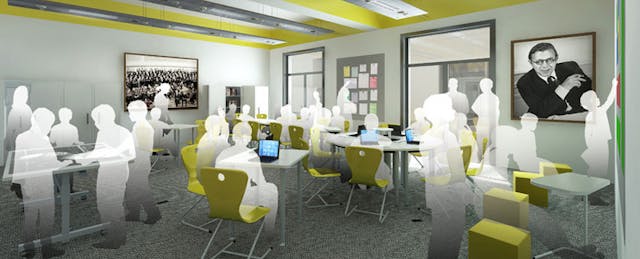Rocketship Education found itself as the focus of a recent case study by Public Impact, which examined upcoming changes to its acclaimed learning lab model for the 2013-14 school year. The reason behind the changes: to give control back to the teacher.
Signs of changes appeared back in December 2012, when a PBS report suggested that teachers did not know enough about what was happening in the learning labs. This was reflected in the study, which stated that Rocketship
"leaders wanted to fix a disconnect they saw between what happened in the lab versus the classroom by bringing the online work closer to the teachers, giving them more control over the digital learning students experienced and letting them integrate it more into their teaching..."
To accomplish this, Rocketship's new model will shift focus from running purely adaptive programs, to using programs that give teachers greater control over content that gets assigned.
This new model also involves putting computers into a flexible, open-space classroom that may house as many as 115 students, along with three teachers and a full-time individualized learning specialist. Teachers are expected to pull groups of students as needed for into smaller learning groups for direct instruction or projects.
It's worth noting that this new model will only apply to Rocketship's fourth- and fifth-grade classes. In early pilots, the transition raised challenges such as adjusting to a new schedule, finding the balance between teachers' expertise and students' needs, and figuring out how to best facilitate collaboration between four teachers in one room.
This new approach takes place at a time when there is ongoing debate over the balance between adaptability and assignability in online programs. Should teachers leave it to these programs to automatically deliver content to students? Or should teachers remain in the driver's seat to dictate the pacing of instruction?
Rocketship's decision appears to be leaning towards assignability.


